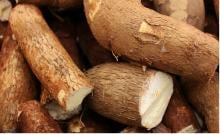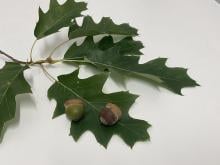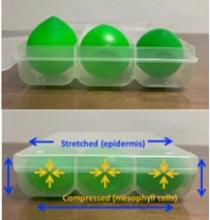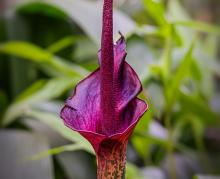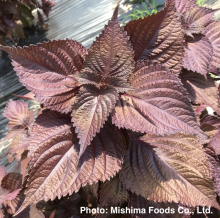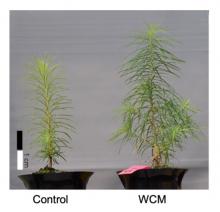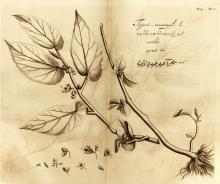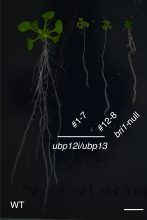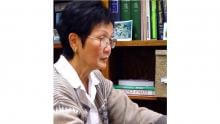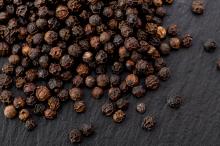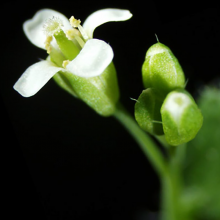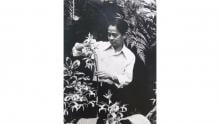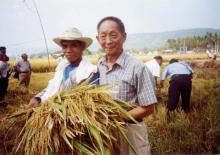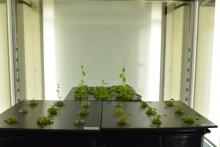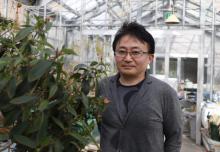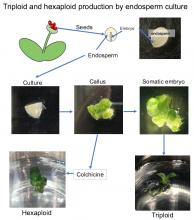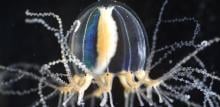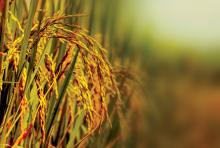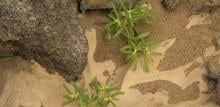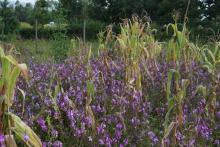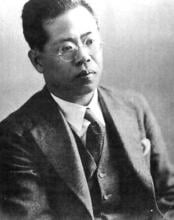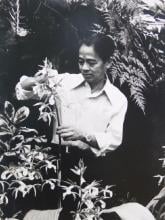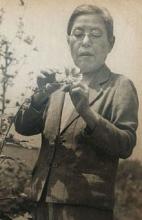Biology Botany
News
19 Mar 2024
The 12th Starch Value Chain ASIA conference was held in Vientiane, at Crowne Plaza Hotel, from February 27 to 29, 2024. The conference encompassed four key themes: Asia’s starch markets, industrial and food-grade tapioca starch in Laos with expansion plans, sustainable climate-smart agri-technology for rice and cassava cultivation, and challenges for future growth in Asia's biogas-to-energy sector.
22 Feb 2024
The effects of a phenomenon called tree masting on ecosystems and food webs can be better understood thanks to new theoretical models validated by real world observations.
17 Aug 2023
Japanese fossil forest found, AI finds a way to people’s hearts, Language diversity and child social development & Supplement for kidney disease. Plus Submissions open for Asia Research News 2024. Read all in the latest Editor's Choice.
21 Jul 2023
An exquisitely preserved fossil forest from Japan provides missing links and helps reconstruct a whole Eurasia plant from the late Miocene epoch.
17 May 2023
A research group led by Osaka University has found that plant cells may be able to detect mechanical forces to determine their own position within the leaf—whether they are on the surface or in the inner tissues—and therefore differentiate into appropriate cell types after damage. These findings reveal how plants regenerate the correct type of tissues when damaged, and may improve our understanding of the mechanisms underlying the high regeneration potential of plants.
03 Mar 2023
Insights into their diversity will help to understand and protect them and their natural environment.
11 Jan 2023
A team of Japanese researchers created a high-quality genome assembly of red perilla, a step toward harnessing the plant’s potentially useful bioactive chemicals — and its medicinal properties.
26 Oct 2022
Plastic sheets coated with an Eu3+ film that converts UV light to red light were able to accelerate growth of vegetal plants and trees.
23 Oct 2022
Published in 1693, Hortus Indicus Malabaricus offers a glimpse into the history of medical and natural sciences of South Asia.
06 Oct 2022
Giants in History: Archana Sharma (16 February 1932 - 14 January 2008) conducted research into plant and human genetics that expanded the understanding of both botany and human health.
03 Jun 2022
Scientists have revealed two enzymes that regulate protein degradation of proteins in the cell membrane of plants, and established the roles they play in plant growth and development.
05 May 2022
Giants in History: Ground-breaking cancer researcher Kamal Jayasing Ranadive (8 November 1917 – 11 April 2001) advanced the understanding of the causes of leukaemia, breast cancer and oesophageal cancer through the use of animal models.
17 Mar 2022
Giants in History: Woo Jang-choon (8 April 1898 – 10 August 1959) was a Korean-Japanese agricultural scientist and botanist. Woo performed horticultural research, first in Japan, then in Korea.
10 Mar 2022
Giants in History: Roseli Ocampo-Friedmann (23 November 1937 – 4 September 2005) was a Filipino-American scientist whose research focused on cyanobacteria and microorganisms that inhabit extreme environments.
09 Mar 2022
Researchers in Malaysia are using the chemistry of natural products for sustainable health and energy solutions.
09 Mar 2022
Scientists from Hokkaido University and colleagues have identified a pathway that accelerates plant flowering in low-nitrogen soils — a finding that could help enhance agricultural production.
04 Feb 2022
Rice has long been a staple food for more than half the global population. The United Nations even declared 2004 the International Year of Rice to raise awareness and encourage action to protect and advance the crop for a rapidly growing population. The genetic guidance rice uses to grow and reproduce, however, is still not fully understood. Now, a research team based in Japan is learning more, including how critical one gene is for the plant to develop grains of rice, which serve as both seeds and food.
03 Feb 2022
Giants in History: Rapee Sagarik (4 December 1922 – 17 February 2018) was Thailand’s renowned expert on orchids. Sagarik dedicated his career to the research of native orchids in Thailand.
11 Sep 2021
Giants in History: Chinese agronomist Yuan Longping (7 September 1930 – 22 May 2021) developed the first varieties of the high-yield, hybrid rice that brought food security to multiple countries including China, which had been ravaged by food shortages as recently as the mid-20th century.
28 May 2021
Scientists from Japan, Europe and the USA have described a pathway leading to the accelerated flowering of plants in low-nitrogen soils. These findings could eventually lead to increases in agricultural production.
29 Apr 2021
Living beings need elements to develop properly. The study of ionomics measures and analyses the element accumulations in living organisms to determine which mineral nutrients are required and not required for growth. Associate Professor Toshihiro Watanabe from Hokkaido University’s Research Faculty of Agriculture applies this approach to learn about mineral accumulation in both plants and soil, in addition to inter-element interactions.
22 Jan 2021
Scientists at Hokkaido University and Chiba University have developed simultaneous triploid and hexaploid varieties of Haemanthus albiflos by the application of endosperm culture, thus extending the use of this technique.
03 Dec 2020
A team of scientists from Hokkaido University has suggested that marimo maintain their characteristic spherical shape due to the rarity of the formation of reproductive cells.
19 Mar 2020
Environmental changes trigger tiny RNA segments to modify plant pores involved in photosynthesis.
07 Feb 2020
A research team from the Centre for Genomic Studies on Plant-Environment Interaction for Sustainable Agriculture and Food Security recently found that some non-coding RNA can produce very short proteins (small peptides), which play an important role in regulating organismal development and stress resistances. The findings challenge the very definition of non-coding RNAs and may open a new research path for future drug and crop improvement. The research article has been published in the journal Plant Physiology. (See note)
01 Oct 2019
Jellyfish are animals that possess the unique ability to regenerate body parts. A team of Japanese scientists has now revealed the cellular mechanisms that give jellyfish these remarkable "superpowers."

03 Sep 2019
The leaf shapes of certain species of the Isodon group of flowering plants act as deterrents against a leaf-rolling weevil, according to a paper published in Nature Plants.
11 Mar 2019
An analysis of the chemical signals sent out by rice plants under attack by the brown planthopper could help in the natural control of this insect pest.
17 Dec 2018
Discovery of a hypersensitive suicide germination stimulant.
Events
Sorry, nothing coming up for this discipline
Researchers
Dr. Wong Sin Yeng is an associate professor and Deputy Director at the Institute of Biodiversity and Environmental Conservation, Universiti Malaysia Sarawak (UNIMAS), whose work has led to identifying hundreds of new plant species in Southeast Asia.
Prof Smith’s research programme primarily investigates the ecology and evolution of zoonotic viruses and the molecular epidemiology of human respiratory pathogens.
Giants in history
Pakistani botanist Azra Quraishi (22 September 1945 – 22 November 2002) is recognised for developing virus-free seed potatoes that increased potato production in Pakistan by an estimated five per cent.
Flora Zaibun Majid ( 1939–2018) was an accomplished Bangladeshi researcher in botany and nutrition science and the first female chairperson of the Bangladesh Council of Scientific and Industrial Research.
Indian botanist Shipra Guha-Mukherjee (13 July 1938 – 15 September 2007) made a breakthrough discovery that enabled the genetic study of plants and, by extension, the development of improved varieties of rice, wheat, potatoes, and other crops.
Archana Sharma (16 February 1932 - 14 January 2008) conducted research into plant and human genetics that expanded the understanding of both botany and human health. In relation to botany, she uncovered the means by which asexually-reproducing plants evolve into new species.
Ground-breaking cancer researcher Kamal Jayasing Ranadive (8 November 1917 – 11 April 2001) advanced the understanding of the causes of leukaemia, breast cancer and oesophageal cancer through the use of animal models. She was also among the first to recognise how susceptibility to cancer is linked to tumour-causing interactions between hormones and viruses.
Birbal Sahni (14 November 1891 – 10 April 1949), a pioneer of Indian palaeobotanical research, and founder of what is now the Birbal Sahni Institute of Palaeosciences in Lucknow, made multiple contributions to the study of prehistoric plants. These include the discovery of a new group of fossil gymnosperms (named Pentoxylae), reconstruction of the extinct Williamsonia sewardiana plant, and description of a new type of petrified wood from the Jurassic age.
Little is known about Ali, a teenager from Sarawak, Malaysia, who was chief assistant to the famous naturalist Alfred Wallace. Most of what is known comes from Wallace’s writings. Ali accompanied Wallace on expeditions throughout the Malay Archipelago from December 1855 to February 1862.
Indian organic chemist Asima Chatterjee (1917 to 2006) studied the medicinal properties of plant products, especially compounds known as vinca alkaloids.
Sir Jagadish Chandra Bose (30 November 1858 – 23 November 1937) was a scientist and inventor who contributed to a wide range of scientific fields such as physics, botany and biology.
Woo Jang-choon (8 April 1898 – 10 August 1959) was a Korean-Japanese agricultural scientist and botanist.
Janaki Ammal Edavalath Kakkat (4 November 1897 – 7 February 1984) was an Indian botanist who studied plant chromosomes and genetics.
Rapee Sagarik (4 December 1922 – 17 February 2018) was Thailand’s renowned expert on orchids.
Kono Yasui (16 February 1880 – 24 March 1971) was a Japanese botanist who researched the genetics of poppies, corn and spiderworts and surveyed the plants that had been affected by the nuclear fallout after the atomic bombings of Hiroshima and Nagasaki.
Gloria Lim (1930-2022) was a mycologist from Singapore who studied tropical fungi. One of the first students to attend University of Malaya when it was founded in 1949, she went on to become the first female Dean of the Faculty of Science at the University of Singapore.


